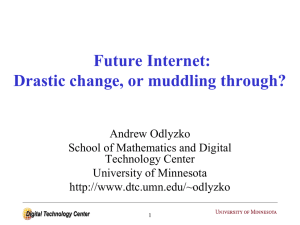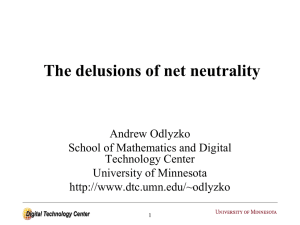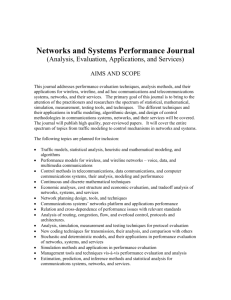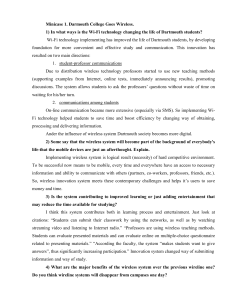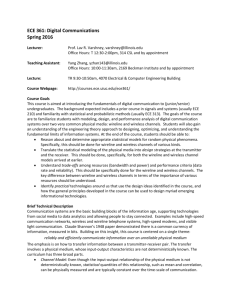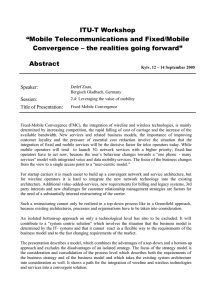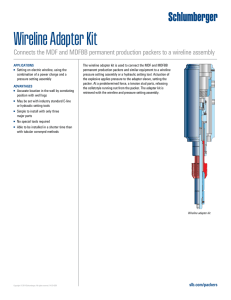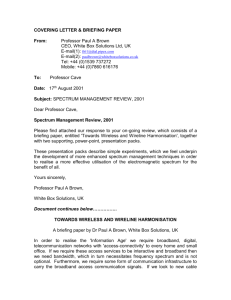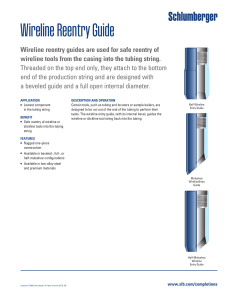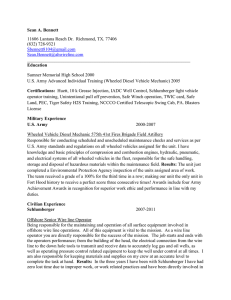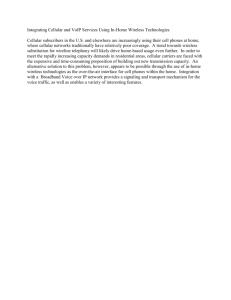Internet traffic growth and implications for access technologies
advertisement
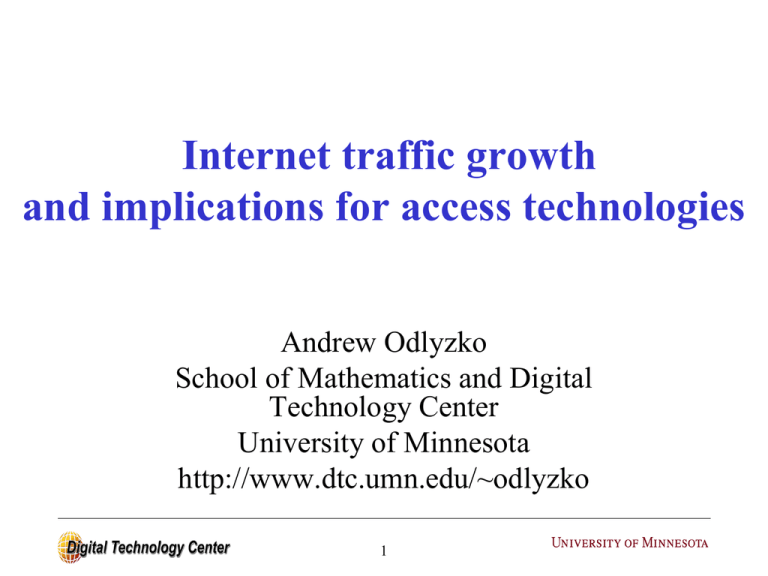
Internet traffic growth and implications for access technologies Andrew Odlyzko School of Mathematics and Digital Technology Center University of Minnesota http://www.dtc.umn.edu/~odlyzko 1 Internet traffic: • Wireline traffic growth slowing • Mobile data growing explosively • Wireline: probably can “muddle through” • Wireless: mismatch between supply and demand • Future traffic levels: result of interaction of complex feedback loops, involving technology, business models, and users 2 Current US and world Internet traffic: • Wireline growth rates mostly in the 50-60% per year range • Cisco white paper: 40% CAGR prediction • Mobile data growth 100+% • Mobile data around 1% of wireline data • 50% growth rate in traffic only offsets 33% cost decline: – traffic: 100 150 – unit cost: 100 67 – total cost: 10,000 10,050 3 Huge potential sources of additional Internet traffic: • Storage Year-end 2006 worldwide digital storage capacity: 185,000 PB Year-end 2006 worldwide Internet traffic: about 2,500 PB/month • Broadcast TV Year-end 2006 U.S. Internet traffic per capita: 2 GB/month Year-end 2006 U.S. TV consumption per capita: 40 GB/month (soft figure, assumes 3 hr/day, at 1 Mbps, no HDTV, ...) 4 http://www.dtc.umn.edu/mints 5 General slowdown (world’s largest exchange): 6 Hong Kong: extreme and intriguing slowdown year 2002 2003 2004 2005 2006 2007 2008 growth rate in Internet traffic over the previous year, for February of each year 304% 154 431 122 61 30 11 Per-capita traffic intensity in Hong Kong is about 6x the U.S. level. 7 Implications of current growth rates: • Wireline requires continued innovation and investment • Wireline does not require big capex increases • “Muddling through” appears feasible and likely • Wireless appears very different 8 Revenue per MB: • SMS: $1,000.00 • cellular calls: 1.00 • wireline voice: 0.10 • residential Internet: 0.01 • backbone Internet traffic: 0.0001 Volume is not value, but is an indicator of ecosystem health and growth! 9 Wireless data: • Many signs of explosive growth (500+% in some cases) • Start from small base (1% of wireline) • Already comparable to wireless voice • Overall growth rate 100+% • Growth rates of even 100% per year likely not sustainable without big increases in capex 10 Implications of wireless data growth: • Old issues (QoS, net neutrality) to be revisited, with possibly different outcomes • High value of mobility may bring big new revenues • Mismatch between wireline and wireless bandwidth to persist • Innovation seeks profits, so may shift to wireless, and to low-bandwidth access • Future traffic levels result of interaction of complex feedback loops 11 Further data, discussions, and speculations in papers and presentation decks at: http://www.dtc.umn.edu/~odlyzko 12
